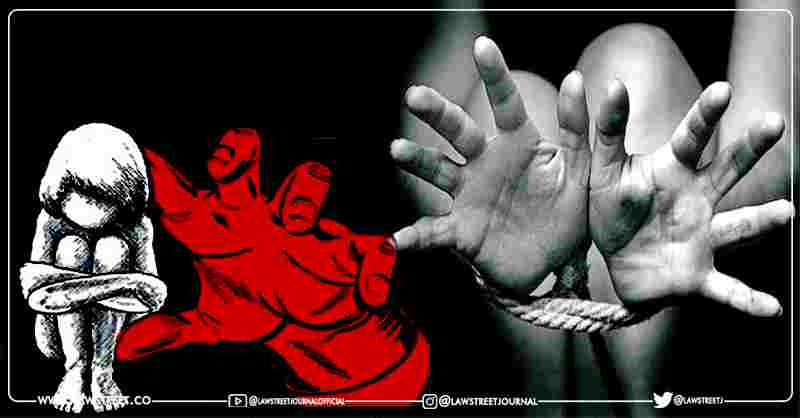The HC noted in its judgement that the state machinery demonstrated 'laxity and indifference' in evaluating Renuka Shinde and Seema Gavit's mercy petition, and therefore threw aside the warrant issued to execute their death sentences. The decision by the Bombay High Court on Tuesday to reduce the death sentences of two sisters, Renuka Shinde and Seema Gavit, to life in prison marks yet another twist in the saga that shook the country in the mid-1990s. The two women, who are currently being imprisoned in Yerawada Central Prison alongside their now-deceased mother, were charged with kidnapping and murdering many children in various locations between 1990 and 1996 and sentenced to prison.
The HC noted in its judgement that the state machinery demonstrated "laxity and apathy" in considering their mercy petition while striking down the warrant issued to carry out their death sentence. Renuka and Seema are in their early fifties and late forties, respectively.
Renuka Shinde and Seema Gawit, as well as their late mother Anjana, were serial thieves. Police investigations at the time found that they used to kidnap youngsters from various locations and use them as bait to divert people's attention before stealing or as a distraction after they were caught stealing. Anjana, Renuka, and Seema were imprisoned in November 1996, along with Renuka's husband Kiran Shinde, who later became an approver in the case. They were convicted of 13 kidnappings of children, nine murders of children, and one attempted kidnapping of a child between June 1990 and October 1996. Anjana died of a disease at the age of 50 in 1998, just before the trial began. In 2001, a court in Kolhapur ordered the two half-sisters to death for kidnapping and murdering six children. Their sentence for five murders was upheld by the High Court. The death sentence was upheld by the Supreme Court in 2006, and their mercy appeal to India's President was dismissed in 2014.
Anjana began conducting petty street robberies by using her girls as bait or as a distraction for passers-by. Anjana kept moving around, including Nashik, Kolhapur, and Pune. They began kidnapping children in 1990, and some of them were murdered. Over the next few years, these instances occurred in Pune, Thane, Kalyan, Kolhapur, and Nashik, with the majority of the complaints being filed in Kolhapur and then tried in the sessions court. The trio murdered their first victim, a kid, by slamming him against a pole to injure him and divert attention away from one of the daughters who had been caught stealing.
Anjana, Seema, Renuka, and Kiran were arrested in Nashik for kidnapping a girl who was the daughter of one of Anjana's two husbands. This was the beginning of the investigation, and it was from here that the investigators tracked their crimes back in time. Investigators suspected that the number of kidnappings and killings was more than what they were charged with.
The matter was taken up by the state Criminal Investigation Department after a preliminary investigation. Suhas Nadgauda, who is presently assigned to the Anti-Corruption Bureau in Pune as an Additional Superintendent of Police, was part of the case's investigation team.
"While the crimes first came to light in Nashik, an inquiry showed that they had begun kidnapping and murdering from Kolhapur," Nadgauda told the Indian Express. It was a large-scale investigation that took place in several locations. 156 prosecution witnesses testified throughout the trial, and Special Public Prosecutor Ujwal Nikam said that it was "the rarest of the rare crimes." For the kidnappings and six murders, the trial court convicted them to death. An investigation indicated that the majority of the children abducted and murdered by Anjana and her daughters were from low-income backgrounds.
"I am glad that the HC has mitigated their execution sentence," Manik Mulik, a Kolhapur-based lawyer who represented the three mothers and daughters in their trial, told the Indian Express following the High Court ruling on Tuesday. "They have undergone what is much worse than a death sentence, having spent more than 20 years on death row. If we consider their perspective, it occurs to me that if they had been hanged immediately after their conviction, they would not have lived this long with the belief that they were the worst of human beings. I was in communication with Renuka's eldest of three children until three years ago."
"We must not forget," says Adv Mulik, "that the case was largely based on the testimony of approver Kiran Shinde." When he was first detained, he made a confessional statement in which he named Anjana as the main suspect, with the sisters playing a minor part. He modified his remark when Anjana died, naming his own wife and half-sister-in-law. When I reflect on the case, I believe that we as a society were not objective in our assessment of the facts. They were already classified in our heads. This is because it came as a shock to all of us, and we were all shocked to learn that quite ordinary ladies had been charged with the most heinous of crimes."









